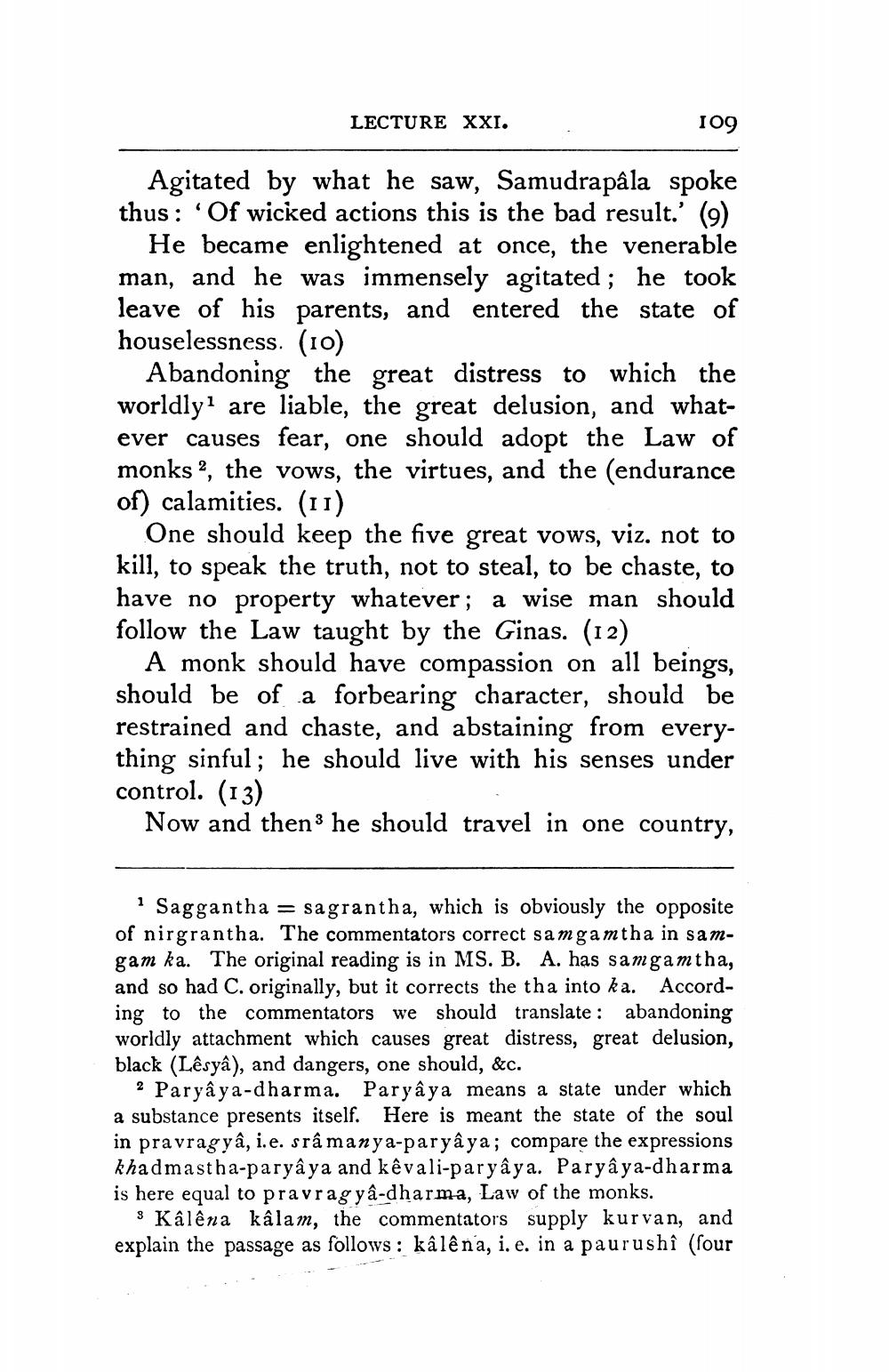________________
LECTURE XXI.
109
Agitated by what he saw, Samudrapâla spoke thus: 'Of wicked actions this is the bad result.' (9)
He became enlightened at once, the venerable man, and he was immensely agitated; he took leave of his parents, and entered the state of houselessness. (10)
Abandoning the great distress to which the worldly are liable, the great delusion, and whatever causes fear, one should adopt the Law of monks?, the vows, the virtues, and the (endurance of) calamities. (11)
One should keep the five great vows, viz. not to kill, to speak the truth, not to steal, to be chaste, to have no property whatever ; a wise man should follow the Law taught by the Ginas. (12)
A monk should have compassion on all beings, should be of a forbearing character, should be restrained and chaste, and abstaining from everything sinful; he should live with his senses under control. (13)
Now and then he should travel in one country,
1 Saggantha = sagrantha, which is obviously the opposite of nirgrantha. The commentators correct sa mga mtha in samgam ka. The original reading is in MS. B. A. has samgamtha, and so had C. originally, but it corrects the tha into ka. According to the commentators we should translate : abandoning worldly attachment which causes great distress, great delusion, black (Lêsya), and dangers, one should, &c.
2 Paryâya-dharma. Paryâya means a state under which a substance presents itself. Here is meant the state of the soul in pravrag yâ, i.e. srâmanya-paryâya; compare the expressions khadmastha-paryâya and kêvali-paryâya. Paryâya-dharma is here equal to pravrag yâ-dharma, Law of the monks.
s Kâlêna kâlam, the commentators supply kurvan, and explain the passage as follows: kâlêna, i.e. in a paurushî (four




